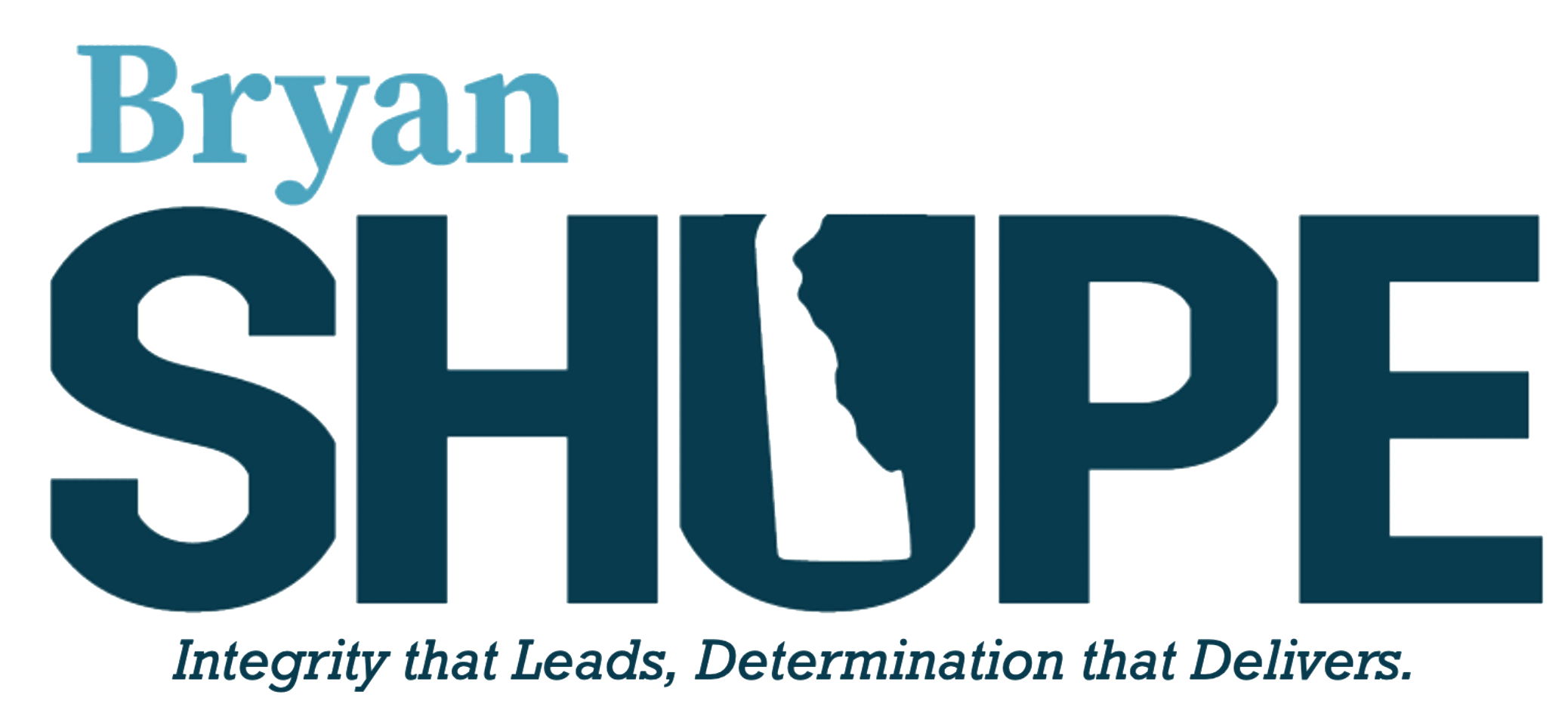By State Rep. Bryan Shupe
The debate over whether indicted State Auditor Kathleen McGuiness should resign or take a leave of absence from her post highlights a larger systematic failure on the issue of government accountability and transparency in Delaware.
Over the last 18 months, we have seen five Delaware elected officials accused of misconduct. While every citizen should find this disturbing, almost as troubling is that each case has been treated differently. As it stands, legislators pick and choose which colleagues will be held accountable and which ones will be subject to a lesser standard.
I do not believe justice is something that should be decided on an arbitrary sliding scale, based on the personal whims of legislators or the political affiliation of the accused. There should be clear protocols for handling all cases of official misconduct involving elected officials in an equitable fashion. Without a systematic approach, written into law, legislators cannot expect to retain the public’s trust, which is the foundation of our republic.

Delaware’s Freedom of Information Act (DE FOIA) also needs to be strengthened to provide citizens with better access to state government data. Among other things, we need to address gaps in the DE FOIA law, limit the ability of government to hide information from citizens, and improve transparency in all aspects of legislative action.
One obvious gap exposed this year was the inability to obtain state legislators’ emails through the DE FOIA. As the former Mayor of Milford, I find it highly inconsistent that municipal elected officials can have their emails solicited through the Freedom of Information Act, but not their counterparts in the state legislature. I am confident that there is an opportunity to protect sensitive information — including discussions on personnel and contract issues — while balancing the need for disclosure when questions are raised over potential misconduct.
During the governor’s COVID-19 State of Emergency declaration — when data should have been more freely shared with the public, press and lawmakers — the executive branch suspended FOIA for eight months, making governmental information almost impossible to acquire. To address this shortcoming, I am sponsoring House Bill 203. It seeks to eliminate any suspension of our state’s Freedom of Information Act. Under my bill, emails involving personnel issues, contracts, and ongoing investigations would continue to be protected, as they currently are.
The recent ethics investigation into State Rep. Brady’s offensive remarks made in a leaked email gave the public an inside look at how the House Ethics Committee works and the lack of transparency when elected officials are faced with potential ethics violations. Outside of the initial leaked email that was published in a newspaper, no other evidence presented to the House Ethics Committee was made public.
The deliberations and the decision made by the committee, which consists of House leadership, was done behind closed doors. Only the final decision was shared with the public and this was only done after the process concluded.
I believe the system we use for ethics complaints in the House of Representatives is deeply flawed. An ethics investigation can only be called by a member of the General Assembly. This is fraught with obvious conflicts-of-interest since many legislators do not want to alienate colleagues and potentially hamper the prospects for bills they are sponsoring. Perhaps it is time to consider the creation of an independent entity, like an Inspector General, that interfaces directly with the public, identifies and investigates potential ethics violations, as well as fraud and abuse, and submits its findings publicly.
Additionally, I find another common conflict-of-interest are legislators that work for organizations receiving direct funding from the state – money that is appropriated via the legislative branch. At a minimum, I believe a member that works for a business or organization that receives funding through the legislature should not serve on any committee writing the operating budget, Bond Bill, and Grants-in-Aid bill, the latter of which sends about $50 million annually to hundreds of non-profit organizations serving the community.
One of the simplest ways for the legislature to become more accountable is to make the work of the General Assembly more transparent. That is why I am sponsoring House Concurrent Resolution 10, which calls for the Division of Research, the Office of Management and Budget, and the Delaware Department of Technology & Information to create a detailed and implementable plan to stream audio and video of all floor and committee action in the General Assembly. It also calls for recording this material and making these recordings available to the public via an online archive.
I am among a group of legislators that have consistently advocated for more online public access to the state’s legislative affairs. Due to circumstances forced on the General Assembly by the pandemic, the legislature is now more virtually accessible than it has ever been. HCR 10 would ensure that this process continues, without stalling or backtracking.
Along with colleagues who share my views on making Delaware government more accessible and accountable, I am looking forward to moving these proposals forward after we return to action in January. These efforts need the vocal support of Delawareans, so these crucial changes are not bottled-up in a committee or otherwise left to die without consideration. Your backing could mean the difference between the government you have and the one you deserve.

